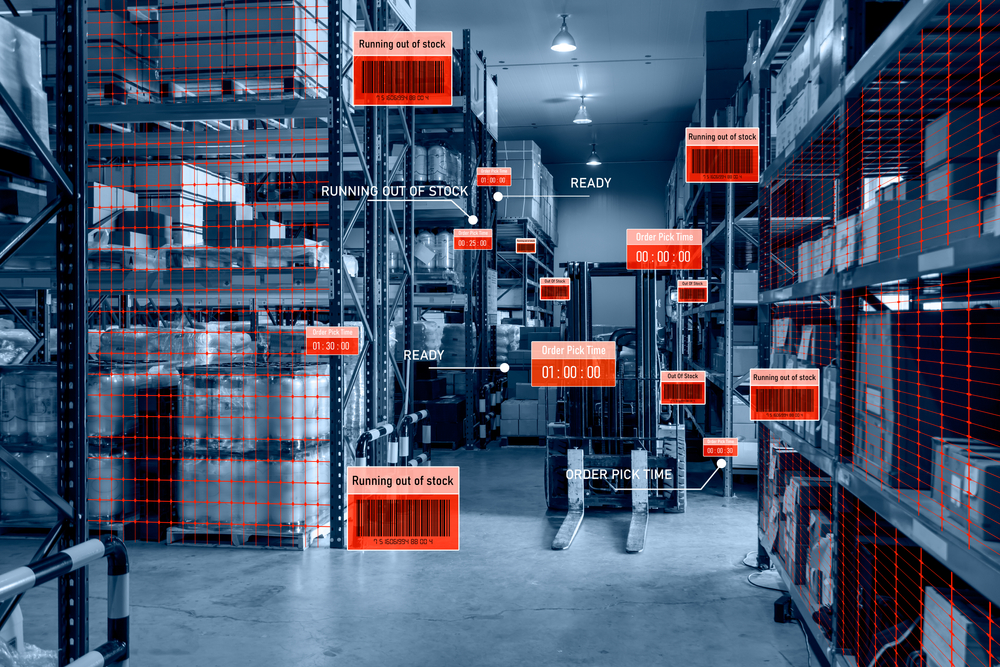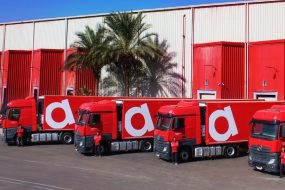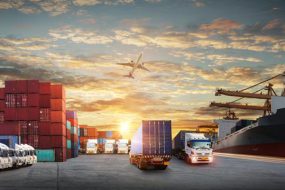

Technology is transforming the business landscape, with advanced logistics AI at the forefront of this transition. Automation in logistics streamlines operations reduces costs and improves customer service. You may miss significant opportunities if your business has not embraced AI. Studies indicate that companies using AI in logistics can reduce errors by 20 to 50 percentresulting in fewer lost sales and improved product availability.
But what does “advanced logistics AI” really mean? It refers to a system that automates certain aspects of supply chains, enhances data analysis, and enables businesses to make quicker, more informed decisions. Let’s review the critical steps involved in adopting AI in logistics operations.
Is your organisation ready for artificial intelligence?
Before moving into automation, you must evaluate your business’ readiness. This step involves determining whether your current setup can handle the transition.
Here’s how you go about it:
Identify your biggest challenges
Every logistics operation has its pain points. Are your shipments frequently delayed? Is tracking packages a hassle for your customers? Are costs spiralling, but your systems can’t keep up? AI excels at solving these issues—but first, you must know what they are. For example, automation might be the answer if frequent delays stem from outdated manual processes. AI-powered tracking can resolve this issue if customers frequently inquire about their deliveries.
Related article: How Courier Supply Chains are Evolving Now
Assess your technological infrastructure
AI needs swift and dependable data infrastructures, consistent internet connectivity, and resilient tools to manage increased demands. Consider the technology you currently employ for inventory management, courier tracking, and communication. Does it possess sufficient speed to accommodate real-time data processing? If it lacks this, you need to upgrade.
Are your employees ready?
Is your workforce ready to work with AI? Investing in comprehensive training to educate your staff about automated systems, such as AI-powered courier tracking and inventory management, is essential. By investing in your workforce now, you will reap the benefits in the future.
What you stand to gain from advanced logistics AI
AI integration extends beyond simple competitive advantage. Its benefits include demand forecasting, enhanced customer experience, and improved operational efficiency.
Increased productivity and lower expenses
One of AI’s primary benefits is that it makes logistics smoother. AI-powered systems can help find faster routes to reduce delivery costs and fuel usage and speed up delivery times.
Enhanced decision-making
AI feeds on data, and in logistics, this means better decision-making. With AI, you can predict customer demands, manage inventory, and plan shipments more intelligently. Predicting supply chain problems is invaluable because it gives you the insight you need to stay ahead of possible interferences.
Related article: Logistics Made Easy: How Predictive Analysis is Powering Efficiency in Supply Chain Management
Improved customer experience
Automated systems can send notifications in case of delays, ensuring that the customer is informed of what to expect without asking. This early communication significantly contributes to building trust and sustaining customer satisfaction.
Things to look out for
AI promises a lot, but it does require careful consideration. The following are some of the risks and concerns you might consider before implementing:
Data security and privacy issues
Data processing power comes with the responsibility to keep data safe. The last thing you want is sensitive customer information or internal shipping data falling into the wrong hands. Consider investing in robust security measures like encryption and regular system audits, which will help you stay updated with privacy laws and comply with regulations such as GDPR.
Technology integration challenges
Integrating with AI can be challenging when older systems are still running your business. This may present compatibility problems, especially when working with legacy systems. Assess whether your current setup can support AI or will need an upgrade. Working with AI specialists makes this process smoother and prevents operational headaches.
Impact on the workforce
Although artificial intelligence cannot completely replace humans, it can feel threatening to people in the workplace. It’s essential to prepare your teams for changing job roles. However, this shift will allow employees to focus more on meaningful work that requires human intuition. Instead of viewing AI as a replacement, seeing it as an additional resource is beneficial.
Tactics for applying artificial intelligence
You can proceed with organised tactics after assessing readiness and considering the risks involved. Here’s how to do it smoothly.
Begin with pilot testing and gradual integration
Start with a pilot. Choose an area, such as freight shipping or courier tracking, and test the AI system in that domain. Doing this will help you witness how AI works on a small scale and spot any issues early before scaling.
Choose the right supplier and partner
Find a supplier with a successful track record in logistics automation. A good supplier will provide the technology and support through the integration process. That kind of partnership is invaluable, especially for startups.
Related article: The Expert Guide to Choosing the Right Warehouse Logistics Partner
Engage your team from the start
AI implementation can make employees nervous when it could affect them professionally. Therefore, plan to communicate with your team from the beginning. Keep them updated on what’s going on and why, and pay attention to addressing their concerns. Let them know that their expertise is still valuable. This transparency can go a long way in getting everyone on board.
Key Takeaway
Automation in logistics involves utilising the latest technology to position your business for long-term success. To create an environment where AI can thrive, evaluate your current logistics challenges, assess your technology stack and workforce readiness, and identify potential pitfalls. Your system will function more efficiently with the appropriate AI tools and a trusted partner to support your logistics operations. This will enable you to provide superior service and adapt to the evolving needs of your industry.
If you are ready for that journey, working with a trusted partner likeAramexwill smoothen that transition.




